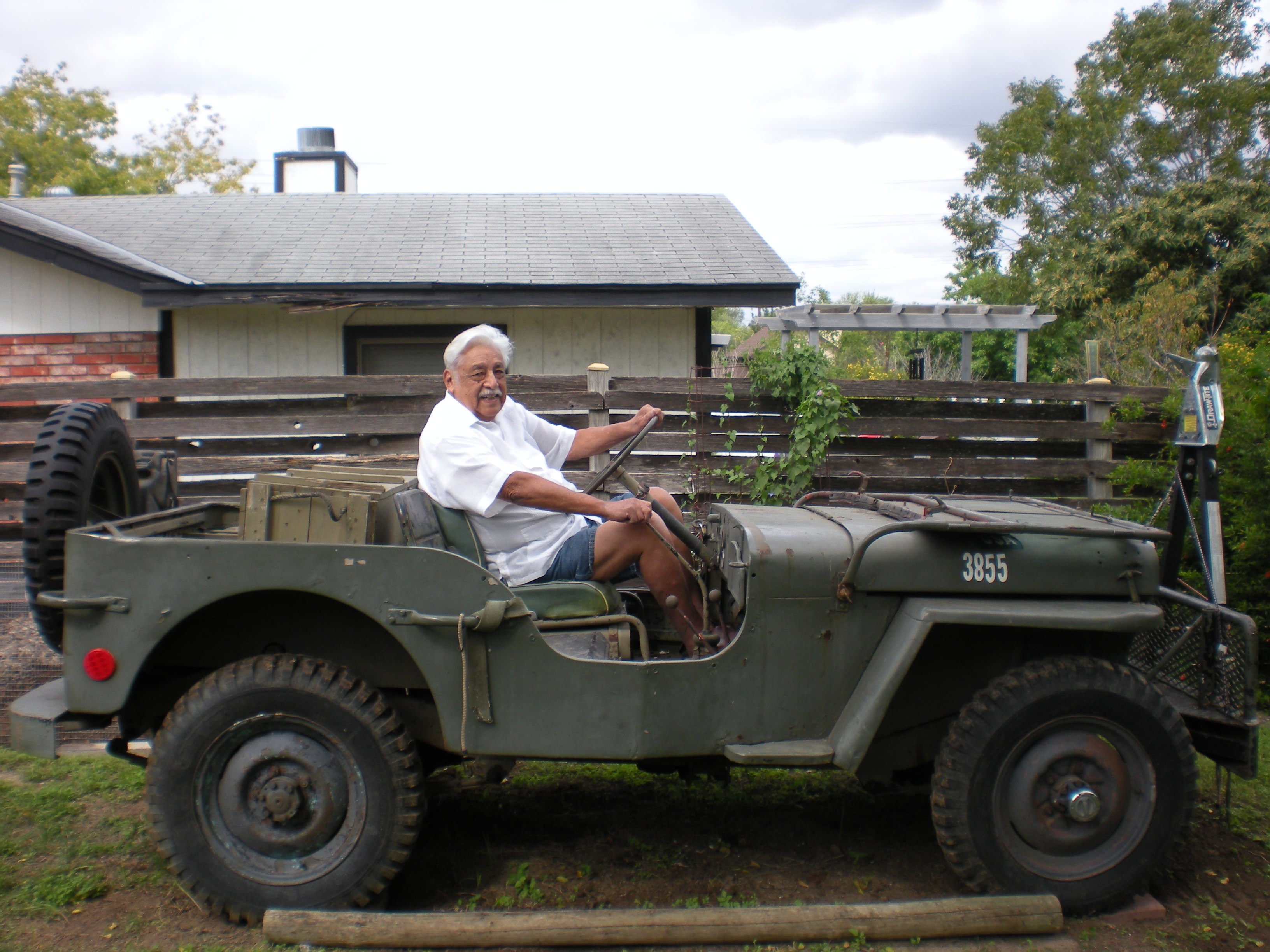TRANSCRIPTION
What are your earliest childhood memories?
Oh gosh, sometimes it's hard to distinguish what's a memory, and what has become family history. Cause you've heard it so many times from your folks, you know. There used to be a department store calledJoske's I don't know if you remember, you were probably too young to remember, well where Dillard's is now, so they wanted to expand so they bought the property and tore down some old homes that were there to make room for their parking lot so I asked my mother, "Where was I born?" She said, "You know where you enter the parking lot, and you give the man your ticket to go out, right there you were born right there and I said, "You mean I was born in a parking lot?" So my mother used to wheel me, I don't remember this before cause I was too little, she used to wheel me in a buggy around the Alamo, cause we lived right next to the Alamo, but I don't have any memory of that. We lived mostly near Austin Street, Live Oak, and Burleson in that area, and I went to Ben Milam Elementary they tore down this beautiful school it looked like Navarro Elementary, a limestone building, they tore it down and it's a maintenance yard now, across the street they built a new Ben Milam, it's used now for bus storage for the San Antonio District Bus Terminal. Burleson street which is an extension of 10th street and so my earliest memory from living in that area and then growing up on Burleson street our playground was a river, that river extension that has been completed, right beside the museum, it wasn't a museum then, but that was our Mississippi River and the old pervervial swimming hole, you know with a rope and the tire tube and it was a clear running stream. We never bothered the landowners and they never bothered us we were careful not to go up on private property, we used to enter through the bridge, but the reason why I talk about it cause there was a canoe race, not a race but a trip from there down to the gulf, So we built a canoe one time out of corrugated roofing material, my brother did most of the work, so we carried it down Burleson street down across Maverick Park to where the bridge was and it floated well he did a good job but then we all piled in and overloaded it and it sank it's probably down still at the bottom of the river.
When you were young what did you want to be when you grew up?
Well I wanted to be in the military, because we lived near Fort Sam and I wanted to be a commissioned officer which I finally did when I went to St. Mary's U. But I changed career paths. I didn't stay in the military.
What did your parents do for a living and what major impact did they have on your life?
Well, my mother had six kids, so that's enough said there raising 3 girls and 3 boys. She's the one who gave us home study, she taught the three boys I don't know why she didn't teach the girls as much Spanish as she taught us. My father was a truck driver for the city of San Antonio when he came back from overseas he had seen too much mud from the trenches so when he came back he was at Kelly field and they asked him can you drive and he said no so they said it's time to learn get in that truck and he did know how to learn so anyways he learned and that's how he made his living driving for the City of San Antonio. When I was born he had an accident he fell they were building the bridge on Dolorosa or Commerce one of those right there near the library and at noon time the workers took off and he stepped in to brace a column and it wasn't his job he was a petty foreman and he fell in the river so they took him to Santa Rosa and bandaged him up and they didn't know his kidney had burst and he almost died and the commissioner said if you don't sue the city you'll have a job as long as I'm commissioner so when the machine was ousted by Maury Maverick everybody was out of a job except my father cause Maury Maverick was the commander of the VFW and they were good friends so he kept his job, until the war came around and he tried to enlist and they said go home Pop we'll call you in when we need you. He was a guard at Kelly and he had interesting experiences because the bomb site was a very very secret thing and whenever they would take the planes up to test them he had to go in the plane and he had to stay with the plane until the MP's came.
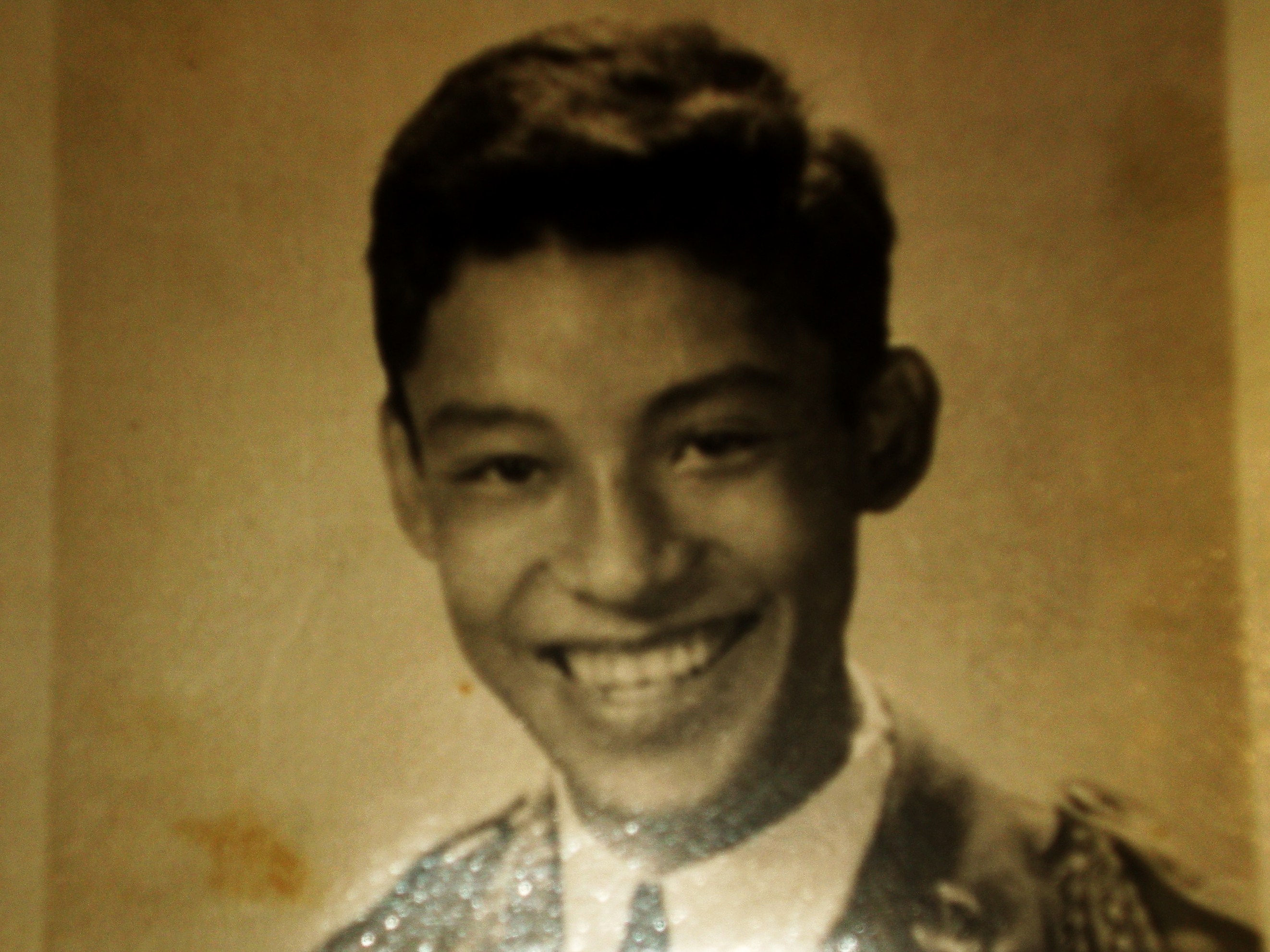
What role did religion play in your life?
Well. My mother brought us up Catholic in fact up until I got sick I played the role of an estsuseya.
What is an estsuseya?
They're ancient plays that were used to teach Christianity in the form of entertainment. The Easter plays, Passion plays, and one called Pastores, The Shepherds. They started in 1835 here I think that was the first written record at the Cathedral but they perform them at the missions come Christmas time. And it's the story of the shepherds going to Bethlehem and the temptations that they face and devils pop up and try to stop them. I was a minor devil with a horrible mask and whip and trident also and I would hackle Hahahahahah!
What were you expecting when you drafted?
Well I wanted to join right away but my father said wait, wait, wait and it's a good thing you know they have a certain number of men when they need you call you but in the mean time I took electronic training which served me very well. It was radio repair, pre-radar course, and it was here in San Antonio and then at the University of Texas in electrical engineering we used a facility at night. But I was called in and reported to the Smith Tire, today it's called the Tower Life Building, the tallest building there. And to our surprise the soldiers were Japanese they loaded us on a truck early in the morning and when out to Fort Sam to an area where it looked like a medieval fort. Growing up on Burleson Street we were near Fort Sam Houston and then my father had been in the war, World War I, 9th infantry, the Manchus they called them, so I knew what to expect it was a lot of manual labor the bottom of the heap. They came in from all over, I don't know what you call them now, Mexicanos, Latinos, Chicanos, well we used the word Chicanos then but a lot of draftees from the little, little towns around there it was all bewildering some of them looked like Apaches you know hair real long many of them couldn't speak a word of English, not one word of English that's where my Spanish came in handy. My mother made sure that I knew how to read and write Spanish before I went to school. She taught me a, e, i, o, u you know all the vowels and combine the consonants with the vowels so I could read and write Spanish. My first lesson, my older brother a year ahead of me said they're going to pick on you there are bullies and you have to show that you're not afraid so when anybody starts to pick on you and your in line getting ready to go in what you have to do is just get in a fighting stance and cock your right arm and tell them, this was my first English lesson, What's the matter con you boy? And put your dukes up and they'll leave you alone. So they did. And my best friend turned out to be a little Anglo boy who didn't know a word of Spanish.
What was military training like?
It was quite simple cause I had 3 years of ROTC and I was in the drill team in high school and honor Guard so I think I knew more than some of the Instructors. Three years you know the college part was very easy but we didn't have all the practical stuff we had firing ranges but we didn't have a lot of field exercises. The training was well when your 18 you're in good condition I felt sorry for the guys who were 30 and 35 especially the smokers I didn't know why they couldn't do simple exercises.
What were your living conditions?
Living conditions? Well it varied first of all the barracks at Fort Sam. Then basic training, ordinary, it wasn't barracks and then in, on Anguar it was a hole in the ground so it wasn't any…
So your living conditions weren't horrible?
Well, I wouldn't say that. One time we went out to guard the airstrip because they didn't like the little light planes going over it. They were worried they would hit us. So we stayed in a ditch all night, a muddy ditch waiting, taking turns in the morning I got up and went to a little shack nearby to dry off and I saw, well a number of the labor battalions would come down the road, so I thought I would have a little fun I put myself out the window without my helmet, and my GI glasses, and my oriental eyes and they thought they were looking at a Jap so I scared them and he turned around in slow motion and then started to run so I had a big laugh until he came back with the whole battalion and a big Tommie gun like Joe Lewis looking for the Jap they had seen, that was a scary moment I thought they were going to shoot me. So I put on my wet uniform as fast as I could and I hollered Hey guys you looking for something, over here. So they came over and made sure I wasn't an English speaking Japanese, but that was close I thought I was going to get shot all this for a silly joke.
When you were in the military is there something that you carried with you, or something that meant a lot to you?
Well they gave us little bibles. I carried it. During the Korean War we were on aboard a troop ship and I was the highest ranking Mexicano there I was just a 1st Lieutenant on the 17th of September we had a celebration there and I gave a grito, the highest ranking person gave the grito, so I gave the grito. The boys celebrated a little too much they wound up in a German jail we had to go get them out and I explained to the battalion commander that it was a celebration and I had sponsored the celebration. So he let them off he didn't punish them.
Did you read anything while in the service?
Especially aboard ship cause it can be pretty boring, anything that was available anything you name it some guy would finish his book and we would pass it around sure I read but we didn't have much choice we didn't have a library so it was anything we could get our hands on. Oh yea since I could write in Spanish I used to write love letters for this guy in Spanish, they were really nice love letters. What bothered me most was the cast system between the men and officers we used to have to carry their luggage that would really gripe me the most, they could carry their own luggage. We were just like servants in the old days. Then they got a ration of liquor and enlisted men never got any liquor at all, except a lot of the boys were from Tennessee and they would make moonshine. The first Marine division and our division we were going to Palau and take these islands and all the guards were down below in the hole where the ammo and I said this is ridiculous no Jap is going to be aboard this ship in here and damage the ship but anyways I went down there and I heard noises and I said come out and there was silence so I took my position and put a round in the chamber and that's will get attention cause you can hear the CLICK-CLACK so they came out with their hands in the air they were boys from the mountains making moonshine down there in the sink where you wash clothes. And instead of having water in their 2 canteens they had moonshine I didn't turn them in of course.
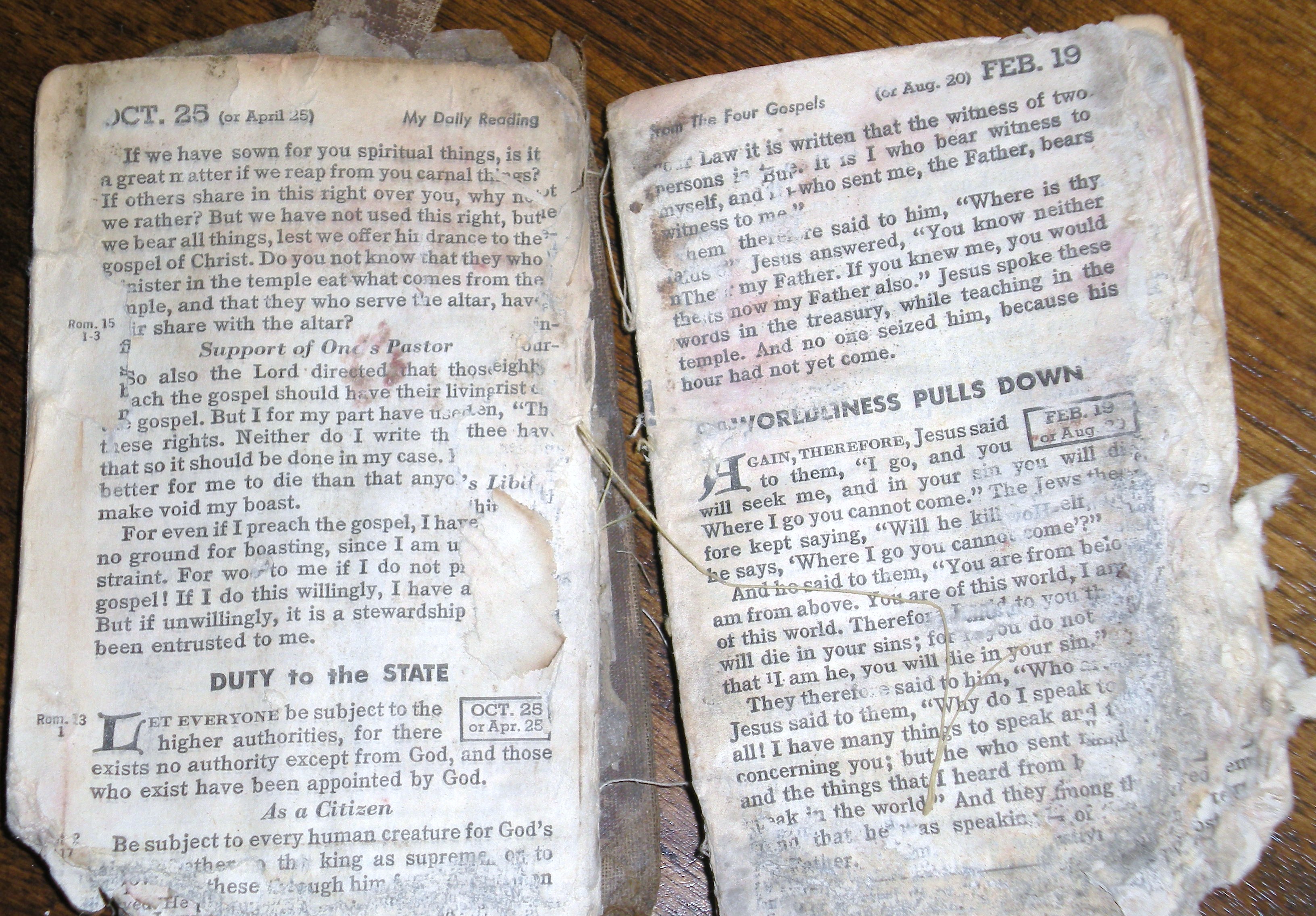
Did you get in on some of that moonshine?
I didn't drink. I learned not to. I was just a kid I smoked a cigarette just to be one of the big boys but I was just a baby really I was naive.
How did you maintain your mental stability during the war, I know you weren't in any immediate danger, but how did you feel about being away from your family, did you communicate with them, and how did you do that?
Well, we wrote letters home we never wrote of any danger, we wrote don't worry about us you know I'm way secure. So that's it. I think the error of some historians they say to rely on letters because they were written immediately and not 50 years later but they might be making up stories. But it was the other way around we didn't write letters that we were in any danger, everything is ok, don't worry, we didn't want to worry our families. And then much, much later on they might start opening up, but no that's where some librarians make the mistake of relying on letters from soldiers thinking that was the way it is when it may be quite the opposite. I didn't want to shame my family so I did my best. An example, in the Philippines we were preparing for the invasion of the Japan learning Japanese, Ichanese and we were forbidden to go to the Philippine villages because they were very short on food, but I could pass as a Filipino cause the sun had darkened me and I wouldn't wear a shirt with a load of bananas on my shoulder and walk right in and visit a family there. So one day I was going out the MP's in a jeep, one of them called out to me, Hey boy how much are them bananas? And I said Oh gosh they got me now cause it was a real no, no you can at least get 6 months of hard labor and 2/3 pay cut. My immediate thought was I was going to disgrace my family if they find out that I'm in the stockade so I just grinned like Forrest Gump because if I open my mouth they're going to know I'm not a Filipino so I just went over there with a silly grin and handed them the stock of bananas and walked away with a grin.
What was the scariest experience you went through when you were drafted?
Well, I was not an infantry man I wasn't right on the front lines. The infantry had its own artillery so we weren't in a danger situation. I guess we went out on patrols and the closest I got to getting hit we were in a hole with a poncho over us it had been raining. Well a number of the fire direction team we used a cipher to convert the fire commands that came from the forward observer into orders to get the correct aesthetics of the gun elevation, and traverse and of course the correct amount of powder depending upon the range and the elevation and it's a lot of math involved. So anyways we were in this hole when a bullet came through it must have been a stray bullet anyway the guy hollered that he was hit in the foot so we thought it might be a sniper up there and he hollered, medic, medic and the medics came and took him out. Then a little later he came back cussing and cussing I had never heard anybody cussing so much the bullet hit his shoe we wore shoes and canvas leggings but the leather was so thick, and the bullet had come some distance it penetrated the shoe it penetrated the sock and hit his foot but it didn't break the skin and since it didn't break the skin there was no blood he didn't get a Purple Heart he wasn't evacuated, he didn't get that million dollar wound. So that was the closest to a bullet I ever came to. And then we would go out on patrol and there was one incident when a cannon, well what the Jap would do the Japs had a lot of experience in China and we were just green as anything. Whenever a cannon would fire they'd also fire to make our troops think they were being hit by our own artillery but that wasn't so it was impossible, but that was a scary moment when they said we were hitting our own troops but we weren't we calculated all our computations and no way it was just that they were a lot more experienced then we were. What it was is if you've seen the picture Hirojima, well Peleliu like Hirojima and Anguar was just like Palelu kind of like a miniature Hirojima with a lot of caves many, many caves and they didn't defend the beach but retreated inland. That was their strategy. So if you see Hirojima so you know what these islands were like the Palau on a miniature scale.
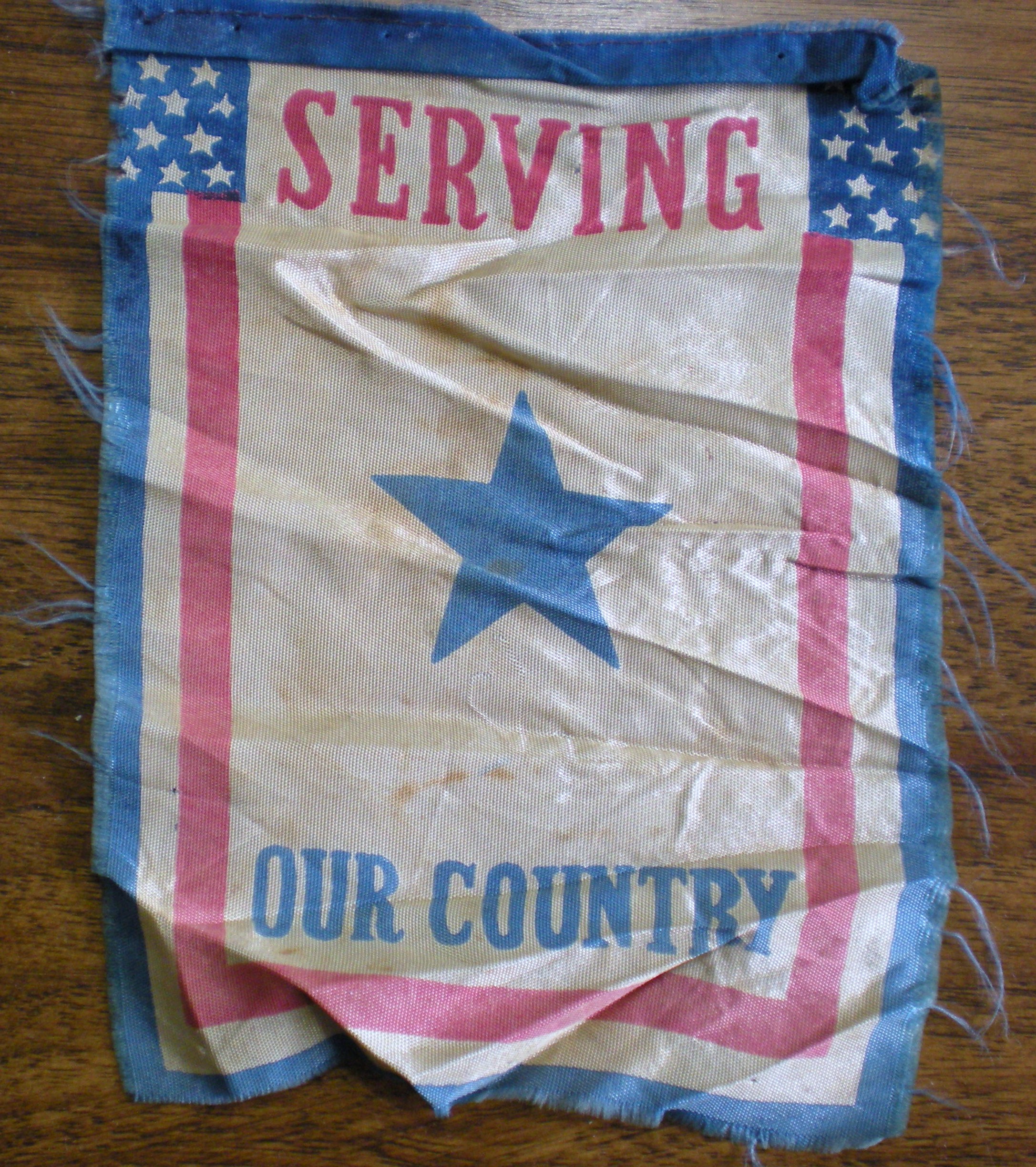
What was your greatest moment in the military?
Well, homecoming of course, docking in Seattle that was a great moment. During the Korean War I was in Germany there was a unit of colored troops and the unit next to them was southern people they were very, very prejudice against blacks and one of the colored troops happened to walk across our parade grounds and he was provoked and they shouted all types of insults at him he couldn't do anything about he was all by himself but he came back later with his 45mm, he was a tanker, and sat in front of the barracks and started shooting up the barracks well I arrived at that time I had to check up on some communication equipment that we were going out to maintain. And I saw him shooting so I drove up and I knew that my men were peering out through the window and I couldn't turn around and run. Sometimes people do heroic things not because their heroes but because there in a situation where they think what will others think of me. So I walked up to the private and pulled my rank on him and said, Hey I'm in officer. So I put out my hand and said give me your pistol and he hesitated he didn't know what to do so he gave it to me and then we turned him in. And then at the court marshal I was a witness, of course, and they asked is this the pistol you took from the man and I said it looks like it; it was they could trace by the serial number. But back then the defense was like many people believe you can't tell one Mexican from another or one Negro from another they all look alike you know. So then they asked can you identify the person and I said Sure that's the guy over there but he was very lucky he didn't kill anybody or wasn't charged with attempted murder but the court knew he had been so provoked that he acted that way so they gave him a very, very light sentence and charged him with careless discharge of a gun or something like that. That was a very scary moment I didn't know what he would do.
What was it like when you came back from being drafted and how did things change?
Well, we came back in a troop ship from Yokahama to Seattle we met with the barge and there was a band and dancing girls, rockettes you know the high kicks, and it was pretty exciting I had gotten into a dice game cause there was not much to do aboard ship coming back so I got into a dice game with some colored troops down in the hole and they wouldn't let me quit cause I was winning so I cleaned out the troops cause when we boarded they said turn in your military scripts for cash, $50 dollars cash, we thought these scripts were valued less so we used them as Monopoly money so when we pulled in to the harbor I had a stack of military scripts that were worth something, but we didn't know it and then the announcement came turn in your military scripts for cash. The busboy said look at all that souvenir money you have and I said well take some and people took some and the rest was just swept up and thrown in the trash cans. Well when the announcement came everybody was running to the trash cans and I had thrown away a bunch of it and I didn't know it.
So how much did you win from your dice game?
Ohhhh, gosh thousands and thousands, but it was because I just had a run, a lucky streak, 7's and 11's, and made my point. They thought I was using crooked dice so they kept changing the dice, but they wouldn't let me quit they wanted to win their money back which they didn't. And then we came back, of course the Army had not been segregated, and back in Texas when the train pulled up to Fort Sam Houston they said all you colored go over there so all the negroes were segregated and I said Uh Oh we're back in Texas segregation begins all over again. So we weren't segregated. So it was back to reality. But in the Navy, I came home one time and I saw a Mexicana driving a garbage truck it was always the Anglos who drove the garbage trucks, and it was a Mexicana that picked up the garbage and that's when I thought, Boy we are really making progress!
Why did you change career paths?
Well, during the Korean War I had been called in as a commissioned officer, went to Europe and my next assignment would be Korea for 13 months, an unaccompanied tour, and we had two children and they were both a year apart and in Europe when the Cold War was on a lot of field duty and I hardly ever saw my family there and then to be assigned to Korea without my family there. My wife said this is not a marriage and it wasn't, you could never see your family, 13 months, you have to decide are you going to marry the Army, she sort of laid it on the line there, you have to choose the Army or the marriage, if you want to stay with the Army well go. So that's why I didn't continue.
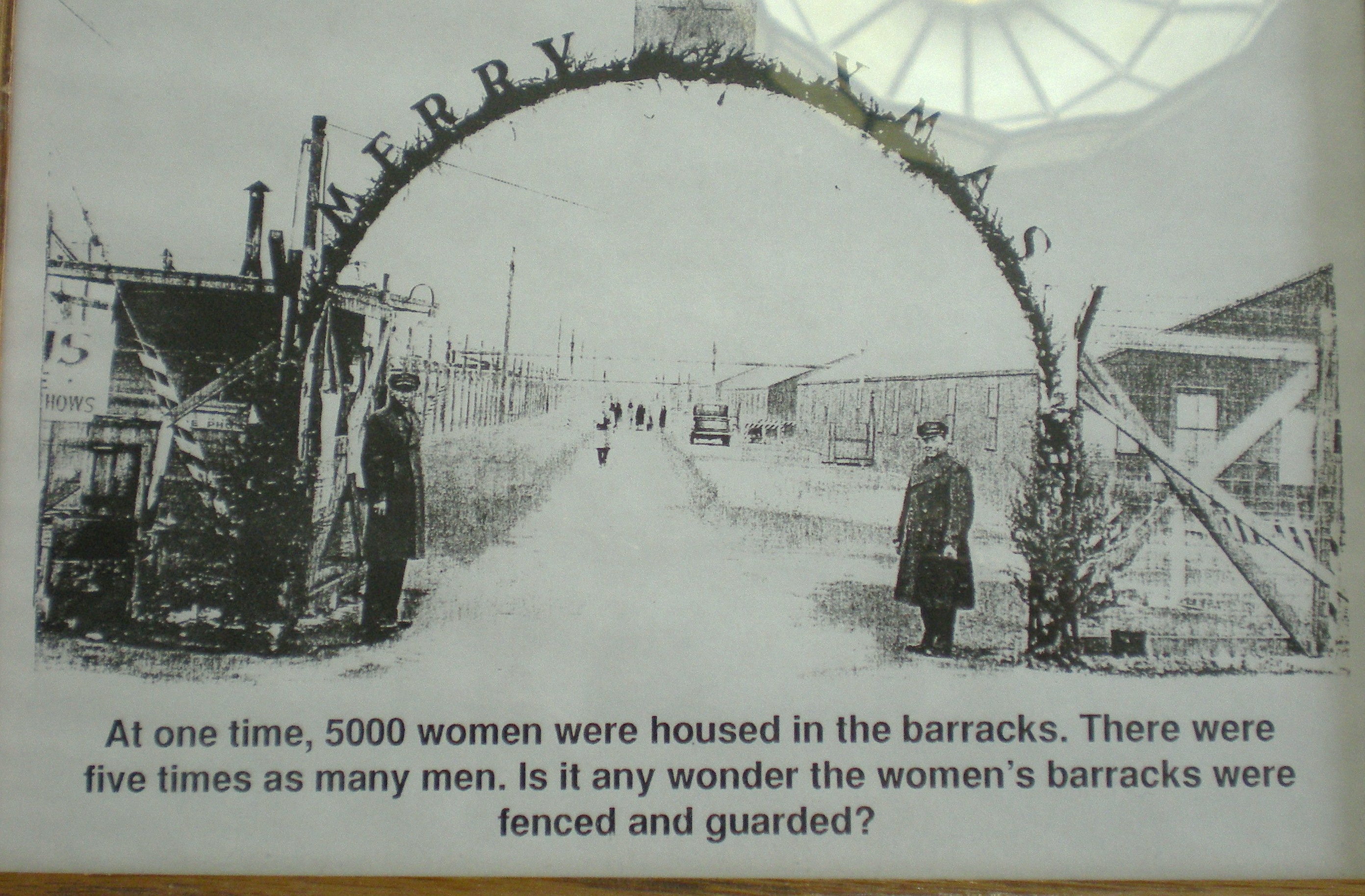
What did your wife do during the war?
My wife of course I didn't know her then I didn't meet her until later. She was a rosie of the riveter at the Utah Air force base and then came back to San Antonio and then they recruited for Hanford, the place where they made the atomic bomb. She was a symbol typist. The guys would ask me what does she do, and I would say I can't tell yah they'll have to kill me if I talk.
What did you do after the War?
I had been trained originally as a radio operator and as a linemen and I said test me out I can climb a pole just as good as any of you guys just give me a chance I'll show you I can climb poles, right now I don't need any training I'm trained already so I kept looking over my shoulder to see if there were any Japs around laying wire. I did the high school deal. They said we want people with the company that will stay with us till retirement and you have the GI bill and you're also going to college and so for you this would just be a temporary so it wasn't a case of discrimination it was practicality. So the first thing I did when I got back was stay with the family for a while I lived at home people didn't go out and get apartments you stayed at home if you had a nice home. So at night we would exchange stories at night and they asked me if I had ever seen a bull fight I had never seen and I told my mother I have to go see one so during the summer I attended the University of Mexico and saw a real bull fight it was great. I got $50 dollars a month from the GI bill and in Mexico City $50 dollars went a long way so that was a beautiful, beautiful time. My mom asked concerned, you're going by yourself? I told her mom I'm taking the bus the Greyhound Bus there's no danger. I wanted to go to Notre Dame but I been gone for so long my parents wanted me home so I went to St. Mary's University.
How did World War affect the place you lived?
Well we were living in the Victoria Courts they were segregated of course; Anglos were in the Victoria Courts, Mexicanos Salazar Apache and the Negros were in the Lincoln Courts. My father is Anglo, but when they saw my mother they wouldn't rent it to us, then they told us it's not discrimination its unit allocation. So we were the only Mexicanos living in the Victoria Courts until they based it according to income so then my father's income rose and contributions from us three boys to the family we became ineligible and we bought a home Vanes St with the savings, but they tore down all the houses when they built 35, they were beautiful 2 story homes with pecan trees, it was a shame.
How accurate are the World War II films compared to the real World War II?
Well, the movies have to show a lot of action, its entertainment, there very, very good reenactments, but most of the war in the service as a private is manual labor hard labor digging holes and loading trucks. And that's what bothered most of the soldiers, the cast system, the medieval cast system, of the officers being the lords and masters and we being the surfs. I think the cartoons Willy and Joe are the best cause they show the attitudes that a lot of the GI's had. The action scenes, it's remarkable at how accurate they are but of course it didn't show 99% of the boredom, a lot of boredom and manual hard labor, it just shows the exciting parts.
Is there anything else you would like to add to this interview?
No.
